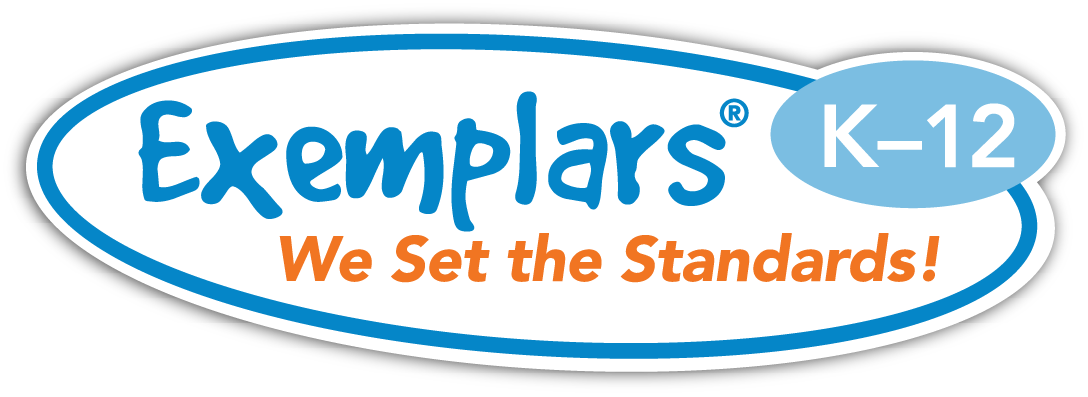A Mindset Shift in Problem Solving
By: LaToya Garcia, Asst. Pricinpal, & Kimberly Naidu, Third Grade Teacher, at P.S. 12, Brooklyn, NY
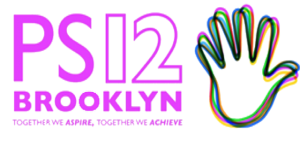
Exemplars Problem Solving Procedure has demonstrated that students can be very creative when they are allowed to choose their own methods for solving mathematical problems. Many educators, we believe, focus on enhancing mathematics skills to meet academic expectations, but fail to promote more critical thinking. Without the ability to inquire while thinking, students will not learn to make decisions.
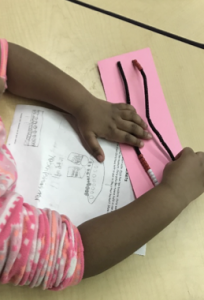 At our school, Exemplars has given students the opportunity to learn from one another and provide opportunities to use multiple solution strategies for the same problem. The Problem Solving Procedure has supported students in understanding a problem, identifying a strategy to use, solve the problem, communicate findings in words, and trying to solve a problem in another way.
At our school, Exemplars has given students the opportunity to learn from one another and provide opportunities to use multiple solution strategies for the same problem. The Problem Solving Procedure has supported students in understanding a problem, identifying a strategy to use, solve the problem, communicate findings in words, and trying to solve a problem in another way.
Exemplars has also helped to prepare our teachers for a more cognitively guided instruction. Our goal was to modify our current curriculum to help students become mathematically literate citizens. We realized that problem solving wasn’t about knowing the solution to the problem, it was about understanding that knowledge. In order to enhance learning, our teachers use a student’s prior knowledge, transfer that information to new situations and organize their students’ knowledge using model-based problems from the Exemplars Library. Teachers are able to plan activities to help students build their mathematical knowledge through problem solving and reflect on the process of mathematical problem solving. Our teachers find that students connect different meanings, interpretations and relationships to the four operations in math.
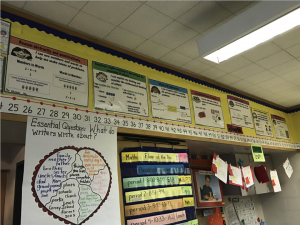 Our training with Exemplars helped to develop a more differentiated learning environment as well. We now integrate mathematics across our curriculum. For example, teachers use more math read-alouds in the classroom as a visual interpretation of mathematical problems. Teachers modify problems from the Exemplars Library by simply changing the character’s name to one student recognized from a literacy lesson. Students are also provided with manipulatives to show math situations. Manipulatives and other mathematical tools are made apart of our daily routines. Materials are made accessible in math centers and students are encouraged to self-select resources when needed. Our entire school community understands that our students need to improve in the area of communication. Students practice using math language to explain what they did while solving a problem and represent their math thinking through drawings and diagrams.
Our training with Exemplars helped to develop a more differentiated learning environment as well. We now integrate mathematics across our curriculum. For example, teachers use more math read-alouds in the classroom as a visual interpretation of mathematical problems. Teachers modify problems from the Exemplars Library by simply changing the character’s name to one student recognized from a literacy lesson. Students are also provided with manipulatives to show math situations. Manipulatives and other mathematical tools are made apart of our daily routines. Materials are made accessible in math centers and students are encouraged to self-select resources when needed. Our entire school community understands that our students need to improve in the area of communication. Students practice using math language to explain what they did while solving a problem and represent their math thinking through drawings and diagrams.
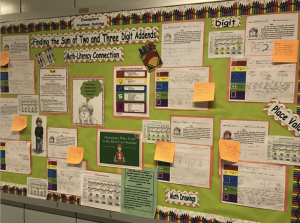 Exemplars has helped to guide and organize our students’ thought processes–a skill that can be transferred to all content areas. Throughout the school, students have begun to recognize the positive impact of a problem-solving strategy guided by specific steps. A third-grade student Michael C. commented, “Exemplars is fun. It helps you to do math and writing. While you’re doing Exemplars, you can also work on your writing.” Another third-grade student Desayee S. said, “What I like about Exemplars math is that it helps me to practice using different strategies for math, like diagrams, models and tables.”
Exemplars has helped to guide and organize our students’ thought processes–a skill that can be transferred to all content areas. Throughout the school, students have begun to recognize the positive impact of a problem-solving strategy guided by specific steps. A third-grade student Michael C. commented, “Exemplars is fun. It helps you to do math and writing. While you’re doing Exemplars, you can also work on your writing.” Another third-grade student Desayee S. said, “What I like about Exemplars math is that it helps me to practice using different strategies for math, like diagrams, models and tables.”
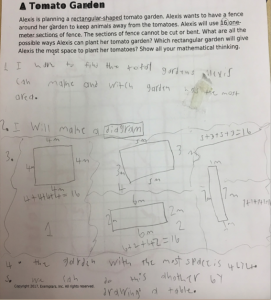 Additionally, Exemplars has led to an increase in student-to-student conversation in students who had previously shied away from mathematics and students who are currently learning English as a second language.
Additionally, Exemplars has led to an increase in student-to-student conversation in students who had previously shied away from mathematics and students who are currently learning English as a second language.
As the year continues and students become even more experienced Exemplars math problem-solvers, we anticipate an improvement in students’ critical thinking and problem-solving skills. Students have already begun to develop a love for mathematics and are learning to persevere until they arrive at their answer.
